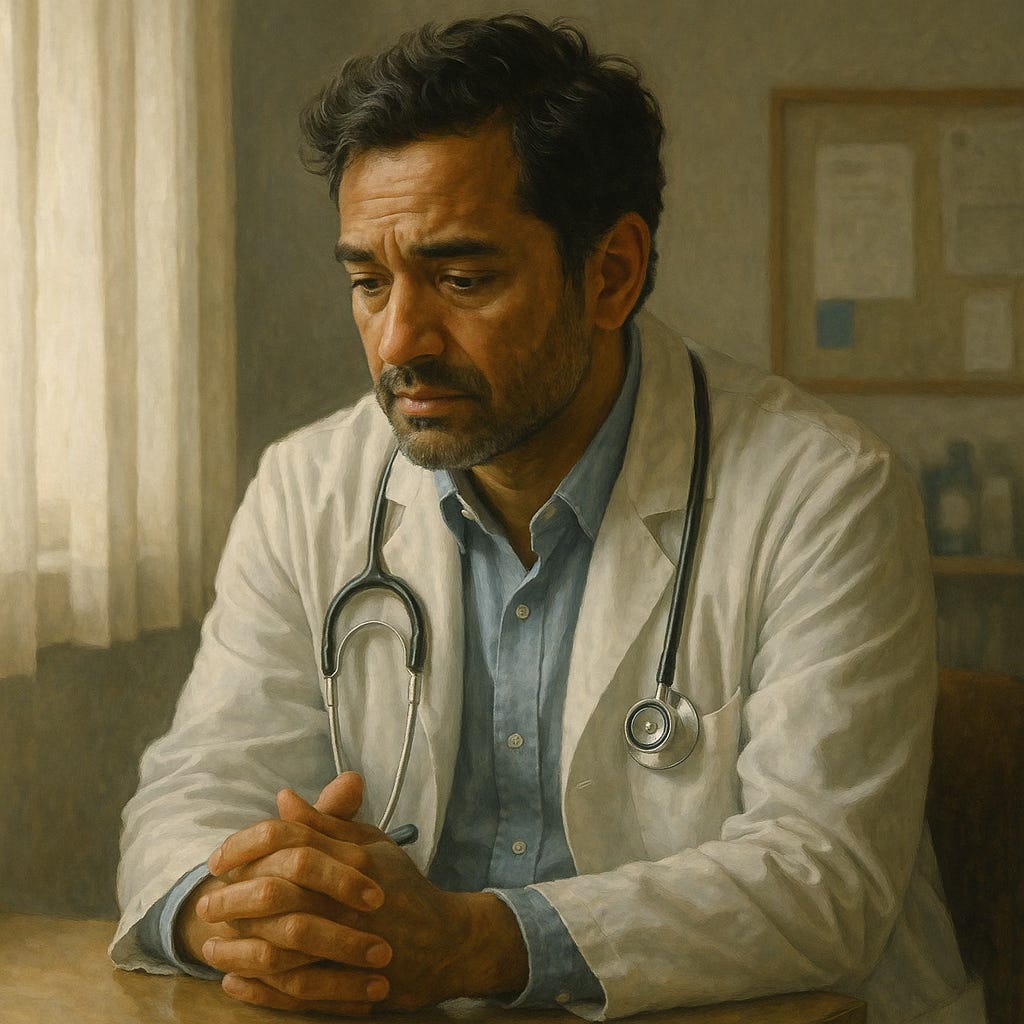If you've ever been frustrated by a patient Googling their symptoms and bombarding you with doubts, just wait — the AI era patient is here.
Now, it’s no longer just about patients having “some” information. It’s about them having access to all the information — in real time, often more updated than what we memorized in textbooks years ago.And honestly? It should have never been a secret in the first place.
The Rise of AI: A Test of Medical and Human Intelligence
The AI I've been working with recently is staggering in its learning speed. It still has gaps — it gets things wrong, it can test your patience, and it's definitely not ready to replace nuanced medical judgment. But what astonishes me is how beautifully it adapts.
If this is what AI looks like now, I have little doubt that very soon, it will be able to provide patients with the most accurate, timely, and broad-spectrum medical insights — often faster and sharper than most current-day doctors.
And that’s not a threat. That’s reality.
But here’s the catch. It still cannot offer one thing.The human connection.And that, my friend, is where the soul of medicine lies.
The Danger of Becoming a Hospitality Industry
Modern healthcare is evolving fast. Beautiful hospitals, luxurious lobbies, concierge check-ins — the infrastructure is world-class.But the vulnerability of the patient has not changed.
They don’t just walk into a hospital building. They walk in with hope. They walk in, helpless. And deep down, they’re praying that someone inside this polished facility will look at them — really look at them — and hold their hand through this journey.
But what do they encounter?Before the moment of healing begins, the bills start coming in.Before they can feel safe, the system activates their stress again.
The very design meant to comfort them sometimes becomes the trigger that keeps them stuck in fight-or-flight.And we know from first-year physiology — healing only begins in a parasympathetic state.A state of safety.
So, what happens when AI becomes even more accurate, even more responsive, but we doctors become less human?
In the Age of AI, What Makes a Doctor?
To stay relevant in this AI-integrated future, we must stop being mere gatekeepers of information. That role is fading fast.
Instead, we must reclaim the role that no AI can replace:The guide through a human healing journey.
This means building something we’ve long forgotten to value:
The art of listening
The courage to witness emotions
The patience to sit with stories
The curiosity to ask: What truly hurts inside this person?
This isn’t easy.It means working on ourselves first.Unlearning the emotional suppression that medical training rewarded.Challenging the ego that wants to be right instead of kind.Facing the frustration that arises when patients “don’t follow rules” — and seeing it as a mirror of our own rigidity.
I’ve Made Mistakes Too
There were days I’ve remembered patients only by their diagnoses.I’ve snapped at patients for “irrational” behavior.There was a time I believed that being clinical was enough.
Now I’m learning.Learning to catch my own patterns.Learning to pause before reacting.Learning that true healing starts from the inside out — for both the patient and the doctor.
From Internist → Intensivist → Introspectivist
In this AI era, I no longer just want to diagnose disease.I want to understand stories.I want to create spaces where people feel safe enough to heal.
And to do that, I must come from my own space of strength.A space where I’m not afraid to meet my own shadows.A space where I can show up present — not perfect — for the person in front of me.
This is how I now see my role evolving:
From expert to guide.
From fixer to facilitator.
From scientist to soulful space-holder.
The Final Question: What Kind of Doctor Do You Want to Become?
In this AI-driven future, our knowledge might be matched or surpassed.But our presence — our ability to witness, to connect, to care — is unmatched.
So I invite every doctor reading this:
🩺 What kind of doctor do you truly want to become?🩺 Are you ready to heal yourself so you can hold space for others?🩺 Will you be replaced… or will you rise?
This is my journey.This is my respect for the doctors who choose to connect.This is my rebellion — to bring the soul back into medicine.
In this AI era, I choose to become an Introspectivist.
So here's to the doctors of the AI era — not just the smartest in the room, but the most human.
May we continue to diagnose with precision, but heal with presence.
And may we always remember: the future of medicine is not just artificial intelligence… it's awakened intention.
Until next time — stay curious, stay connected, stay compassionate.
Dr.Krishna Bharath , MD








